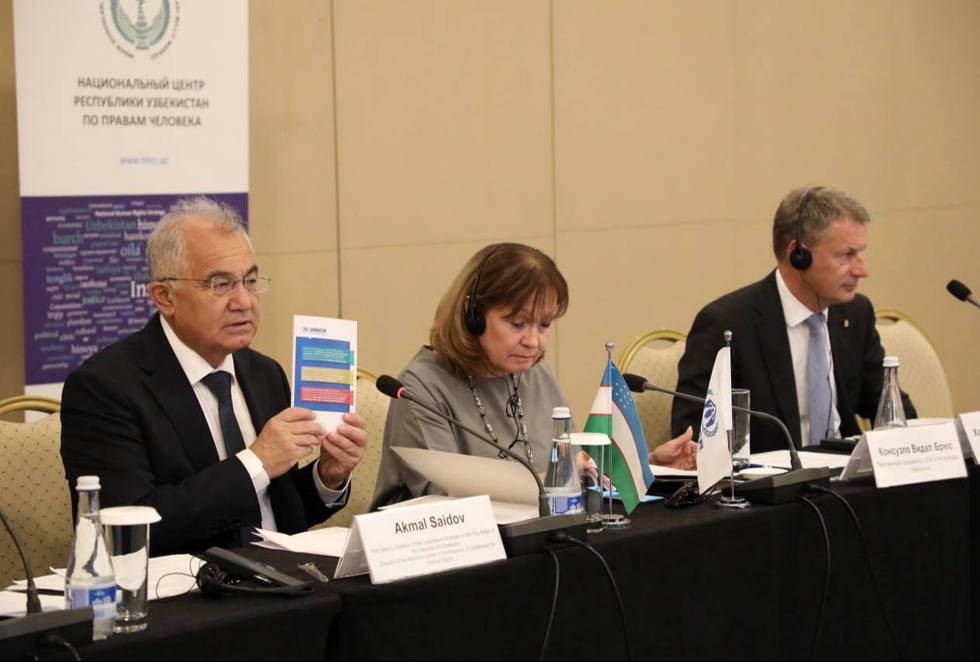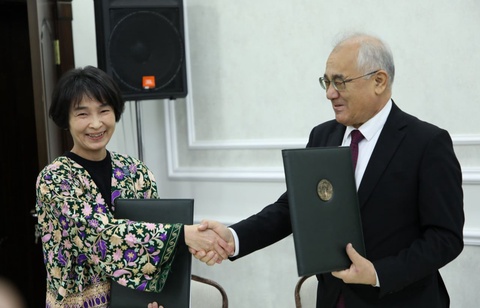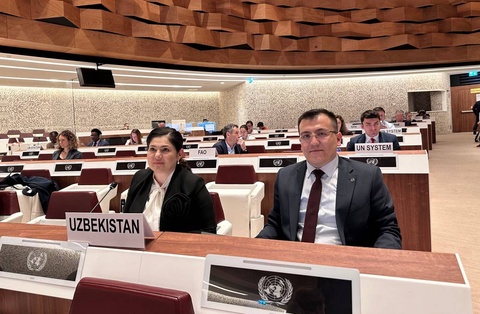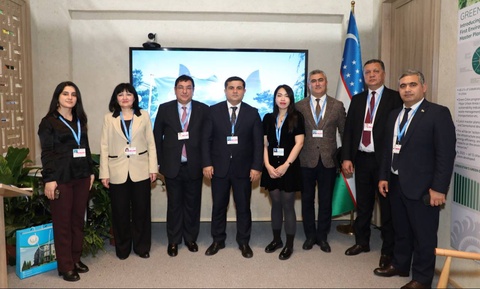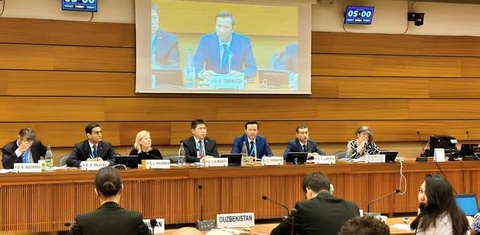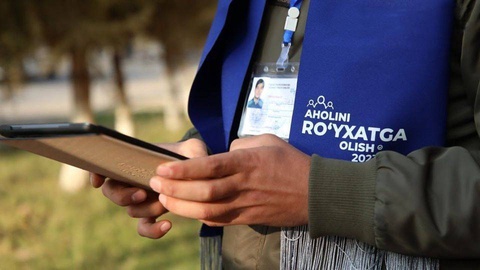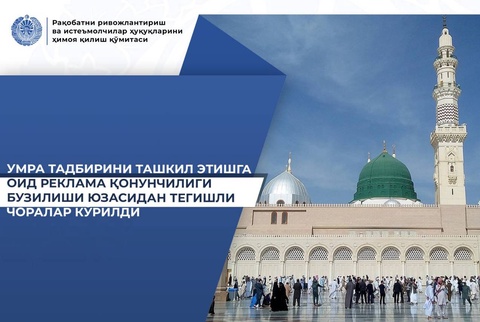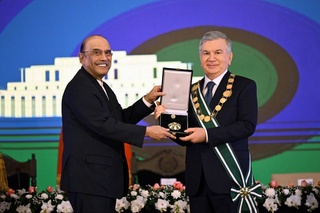The publications were presented to members of the Legislative Chamber and Senate of the Oliy Majlis of the Republic of Uzbekistan, representatives of the Ministry of Foreign Affairs, the Ministry of Internal Affairs, the Ministry of Justice, the Office of the Commissioner of the Oliy Majlis for Human Rights, as well as representatives of international organizations and development partners.
The First Deputy Speaker of the Legislative Chamber of the Oliy Majlis of the Republic of Uzbekistan, Director of the NCHR Akmal Saidov made an introductory speech together with the UN Permanent Coordinator in the Republic of Uzbekistan Consuelo Vidal Bruce and the UNHCR Representative for Central Asia Hans Friedrich Schodder.
"The Government of Uzbekistan is taking decisive steps to reduce and eradicate statelessness on our territory," Professor Saidov said. "Since 2014, more than one hundred thousand stateless persons have been identified in the Republic of Uzbekistan, and the cases of 83,793 people have been resolved."
The study, conducted within the framework of the third joint annual Action Plan of the NCHR and the UNHCR, presents a comprehensive legal analysis of the national legislation of Uzbekistan concerning citizenship and statelessness, as well as follow-up measures to harmonize legislation and practice.
The Guide to Citizenship and Statelessness for Parliamentarians is a global publication containing practical steps to reduce statelessness and examples of how protracted statelessness situations have been resolved through the joint work of Governments, civil society and the international community.
"The desire to eradicate the problem of statelessness is consistent with the Sustainable Development Goals and the basic principle of "leaving no one behind", as they are aimed at ensuring the integration and protection of people," Ms. Bruce said.
Statelessness, or a situation where a person is not recognized as a citizen of any country, affects millions of people around the world. Stateless, undocumented persons are often unable to access the most basic rights, including access to education, formal employment, medical services or marriage registration.
In 2014, UNHCR launched the Global #IBelong Campaign to Eradicate Statelessness. Since then, Uzbekistan has made significant progress in ensuring the rights of stateless persons. Key achievements of Uzbekistan include the adoption of an improved Citizenship Law in 2020 and a change in the practice of birth registration.
At the 30th session of the Universal Periodic Review of the Human Rights Council in 2018, the Government of Uzbekistan supported the recommendations on accession to the 1954 Convention on the Status of Stateless Persons and the 1961 Convention on the Reduction of Statelessness. Also this week, the NCHR and the UNHCR, together with the Ministry of Internal Affairs of the Republic of Uzbekistan, will hold a technical seminar on procedures for determining the status of a stateless person and the standards of the 1954 Convention.
"We remain committed to supporting the Republic of Uzbekistan in accelerating the implementation of the goals of the #IBelong campaign to eliminate statelessness by 2024, including strengthening recommendations and support for accession to the 1954 and 1961 Conventions on Statelessness," Mr. Schodder said.
As of mid-2023, there are 25,413 stateless people living in Uzbekistan - the largest number in Central Asia - most of whom are former citizens of the former Soviet Union and their descendants.
The NCHR and the UNHCR have been cooperating since 2020 to support Uzbekistan's capacity to implement the UPR recommendations related to the reduction and prevention of statelessness and refugee protection.
Press service of the National Center of the Republic of Uzbekistan for Human Rights.


